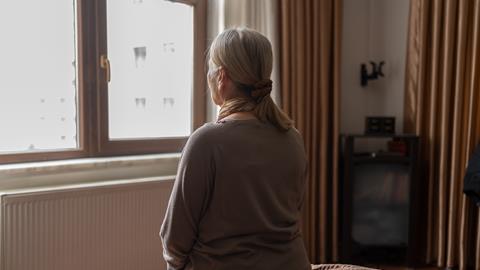Years of cuts have weakened crucial services for women victims of violence including those in the justice system, according to a landmark review of the UK’s performance.
The first Council of Europe evaluation of the UK’s implementation of the Istanbul Convention on violence against women and domestic violence highlighted the ‘chronic under-use’ of emergency barring orders in England and Wales as a ‘major gap’ in the implementation of the convention.
The Istanbul Convention is the Council of Europe’s convention on preventing and combating violence against women and domestic violence. Its monitoring mechanism consists of an independent expert body, the group of experts on action against violence against women and domestic violence (GREVIO), and a political body composed of representatives of the parties to the convention.
The 134-page report by GREVIO said it ‘welcomes the United Kingdom’s ratification of the Istanbul Convention and the efforts taken in its implementation’ but had identified issues which required ‘urgent action by the authorities to comply fully with the convention’s provisions’.
Referring to concerns over legal aid accessibility and the availability of legal aid solicitors and barristers, the report acknowledged that ‘many legal aid providers had to close down after the enactment of the LASPO Act and the Covid-19 pandemic, leaving more and more areas of England and Wales without legal aid providers’.
It said: ‘Women’s rights NGOs indicated to GREVIO that this shortage makes it more difficult for women victims of violence who are eligible for legal aid to actually find a lawyer to take on their case.’
Read more
The report said it ‘strongly encourages’ that legislative and other measures are taken ‘to increase, on the one hand, the accessibility of legal aid for women victims of the forms of violence covered by the Istanbul Convention, and to ensure, on the other hand, the availability of legal aid solicitors and barristers in sufficient numbers across the United Kingdom, for example by providing incentives’.
Referring to forced marriages, the report said although it welcomed the ‘legal possibilities for victims of forced marriages to seek nullification or voidance of their marriages’, all procedures require an application to a court with ‘associated costs’.
‘Although applicants may be eligible to access means-based financial support, in view of the recent limitations placed on legal aid and the severe shortage of legal aid solicitors, this constitutes a barrier for women seeking the dissolution of their forced marriage,’ it added.
The report said there was a need to ensure measures are taken to combat rape myths used in court and ensure adequate civil law remedies are in place to claim damages ‘for the failure of state actors to prevent, investigate and punish acts of violence covered by the scope of the Istanbul Convention’.
It added: ‘Reports of CPS lawyers using victim-blaming language, replicating rape myths and gender stereotypes explain why so many victims decide to stop their support for a prosecution and demonstrate that a culture change is required within the CPS.’



























